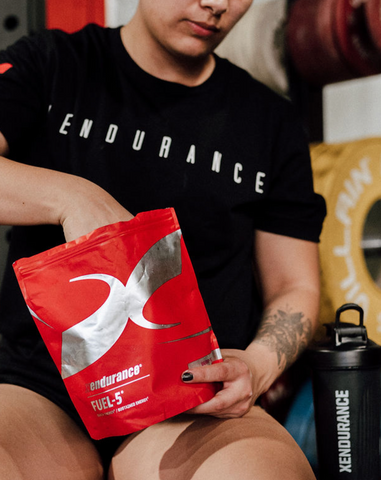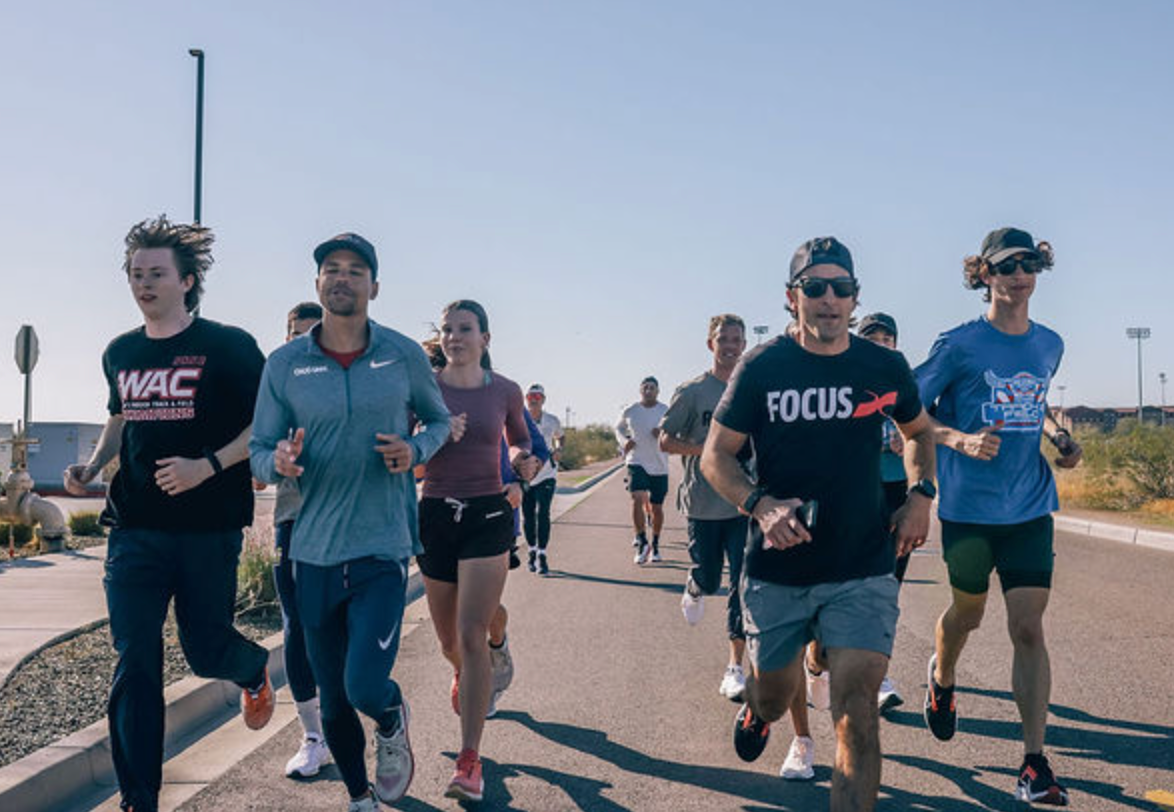Do You Want To Run a Marathon? What It Takes Beyond Just The Miles
Running a marathon is a feat that sits on the bucket list of many but is accomplished by relatively few. It's not just about enduring 26.2 miles (42.195 kilometers); it's about the journey you embark upon, a journey that tests your limits, reshapes your mindset, and demands a holistic commitment to your goal. Whether you're a seasoned runner eyeing a personal best or a newcomer inspired to tackle your first marathon, understanding what it truly takes—mindset, diet, preparation, and more—is the first step toward the finish line. A well-structured marathon training plan is essential in preparing for this challenge.
The Mindset of a Marathon Runner
The first, and perhaps most crucial, component of marathon training doesn't concern your legs, but your mind. Success in marathon running is as much about mental stamina as it is about physical endurance. Legendary marathoners often speak about the race is as much a battle against themselves as against the clock or the course.
The mindset needed to run a marathon is one of perseverance, resilience, and positivity. During marathon training and the race itself, you'll encounter moments of doubt, fatigue, and discomfort. Developing a strong mental fortitude helps you push through these barriers. Visualization, goal setting, and positive self-talk are strategies used by the best in the field to keep their minds focused and resilient.
Insights from the Greats: What the Best Marathon Runners Do
Eliud Kipchoge's journey to breaking the 2-hour mark in the marathon is a testament to the extraordinary capacity of human endurance, both physically and mentally. This historic event, dubbed the "INEOS 1:59 Challenge," took place in Vienna, Austria, in October 2019. Kipchoge finished the marathon in an awe-inspiring time of 1:59:40, an achievement that many had thought impossible. This feat was not recognized as a world record due to the specific conditions under which it was run, including pacing by a rotating team of elite runners and the use of a laser pacing guide. However, it stands as one of the most significant milestones in the history of long-distance running.
Kipchoge's approach to this challenge showcased his holistic view of marathon running, where success hinges on a delicate balance of physical training, mental preparation, and strategic planning. His training leading up to the challenge was intense and meticulously planned, covering not only the physical aspects but also focusing on mental strength and resilience. Kipchoge often speaks about the importance of self-belief and a positive mindset, principles that were crucial in his preparation for breaking the 2-hour barrier.
The challenge also highlighted the importance of technological and logistical support in modern marathon running. From the design of the course to the selection of the pacing team and the innovations in running gear, every detail was optimized to give Kipchoge the best possible chance of achieving his goal.
Kipchoge's achievement in the INEOS 1:59 Challenge is a powerful illustration of his belief that "No human is limited." It serves as a beacon of possibility, not just for athletes but for anyone striving to overcome their barriers. The story of Kipchoge breaking the 2-hour mark adds a remarkable chapter to the narrative of marathon running, underscoring the incredible feats humans can achieve with the right mindset, preparation, and support.
Deena Kastor's journey to becoming an American marathon legend is a compelling tale of determination, strategic ingenuity, and a holistic approach to the sport. Born in 1973, her ascent in long-distance running was fueled not only by her natural talent but also by her meticulous focus on the integration of mind, body, and discipline. Kastor's philosophy extended beyond the physical demands of running; she placed a significant emphasis on mental resilience, nutritional planning, and an innovative, diversified training regimen.
Her story is not merely about the distances she conquered but about overcoming mental and physical challenges through positivity, a carefully crafted diet, and a training plan enriched with cross-training to enhance strength and prevent injuries. Kastor championed the power of positive thinking and visualization to push through the sport's inherent discomforts, believing deeply in her preparedness and abilities.
Nutrition was another cornerstone of Kastor's success. She approached her dietary needs with the precision of a nutritionist, understanding that optimal fueling was critical for peak performance and recovery. Furthermore, Kastor was a pioneer in integrating cross-training into her preparation, incorporating cycling, swimming, and strength exercises long before it became a mainstream practice among runners. This not only augmented her physical strength but also safeguarded her against the repetitive strain injuries common in marathon training.
Deena Kastor's legacy in marathon running goes beyond her competitive victories. It's a testament to the power of a balanced approach to training, where mental fortitude, nutritional precision, and a comprehensive physical regimen converge to create a champion. Her story inspires runners to see beyond the miles and embrace a multifaceted strategy for success.
Nutritional Needs: Fueling for the Long Run
Your diet is your fuel, and when it comes to marathon training, not all fuel is created equal. A balanced diet rich in carbohydrates, moderate in protein, and low in fats is generally recommended to support long-distance running. Carbohydrates are the primary energy source for marathon runners, making up about 60-70% of their diet.
Hydration is another key aspect, with needs significantly increasing during training and the race. Electrolyte replacement is also essential, especially during longer training sessions and on race day, to prevent dehydration and maintain electrolyte balance.
Preparing for the Marathon: Training and Recovery
Training for a marathon typically involves a gradual increase in mileage, with a mix of long runs, speed workouts, and recovery days. Most marathon training plans range from 12 to 20 weeks, gradually building endurance while preventing injury. For those seeking a more extended preparation, a 6 month marathon training plan can offer a comprehensive approach.
Recovery is as vital as the runs themselves. Adequate sleep—7 to 9 hours for most adults—is crucial for muscle repair and overall performance. Rest days are a key component of marathon training schedules, allowing your body to adapt and strengthen.
The Role of Supplements and Hydration
While a well-balanced diet can provide most of the nutrients needed for a marathon exercise plan, some runners turn to supplements to ensure they meet their nutritional needs. Common supplements include iron, vitamin D, and magnesium, but it's important to consult with a coach, trainer, or someone with experience in fueling for this arduous race.
Hydration is critical, with needs varying based on the duration and intensity of training, as well as weather conditions. Learning to hydrate effectively during training runs is crucial for race day success, helping to prevent cramping, dehydration, and hyponatremia (low blood sodium).
Tapering: The Crucial Phase
Tapering for a marathon is a crucial phase of your marathon training guide, designed to ensure that you arrive at the starting line in peak condition—rested, strong, and ready to tackle 26.2 miles. It's the process of reducing your training load in the weeks leading up to the race to allow your body to recover from the rigors of intense training and prepare for the effort ahead. Here’s how to effectively taper for a marathon:
1. Start Timing Your Taper Correctly
Most marathon tapering strategies begin 2-3 weeks before race day. The exact length of your taper can depend on your experience level, the intensity of your training, and how your body recovers. Typically, a 2-3-week taper is common among many marathon training plans.
2. Gradually Reduce Mileage
The essence of tapering lies in cutting back your running mileage to allow your body to recover while maintaining your running fitness. A general rule is to reduce your weekly mileage by 20-30% each week from the peak training load during the taper period. This reduction should be gradual; a sudden drop in mileage could make your body feel sluggish.
3. Maintain Running Intensity
While you’re reducing the volume of your runs, maintain the intensity of your training sessions. Continue to include some race-pace workouts or intervals in your tapering weeks. This approach helps keep your muscles tuned to the effort level they'll experience on race day without overtaxing them.
4. Prioritize Rest and Recovery
The tapering period is as much about mental preparation as it is about physical. Ensure you're getting plenty of sleep and using relaxation techniques to manage pre-race nerves. Rest is when your body repairs and strengthens, so embrace the extra downtime.
5. Focus on Nutrition and Hydration
Eat a balanced diet rich in carbohydrates, proteins, and fats, and avoid making drastic changes to your eating habits. In the final week before the marathon, you might increase your carbohydrate intake to ensure your glycogen stores are fully stocked. Stay hydrated throughout the taper, and avoid alcohol and caffeine if they affect your sleep or hydration status.

6. Reduce Other Forms of Exercise
If you engage in cross-training, consider scaling back these activities as well during the taper period. The goal is to conserve your energy and prevent any last-minute injuries that could jeopardize your race.
7. Visualize and Strategize
Use the extra time you have from reduced training to visualize the race. Go over your race strategy, plan your pacing, and think through how you’ll handle different scenarios on the course. This mental preparation can be as valuable as the physical taper.
Remember, the hard work has been done; the taper is about fine-tuning your body and mind for race day.
Tapering can feel counterintuitive, especially when you’ve been in the thick of high-mileage weeks. However, by allowing your body to rest and recover, you're setting the stage for a strong and successful marathon performance. Embrace the taper as an integral part of your marathon journey.
Your First Marathon: Running Your Own Race
The journey to running a marathon is deeply personal and unique to each runner.
While the physical demands are rigorous, the mental and emotional journey is equally challenging and rewarding. By adopting a strong, positive mindset, focusing on nutrition and hydration, committing to a structured training plan, and understanding the importance of recovery, you can prepare yourself for the rigors of the marathon.
Remember, running a marathon is not just about finishing the race; it's about the transformation that occurs within as you push beyond what you thought possible. As you lace up your running shoes and take the first step toward your marathon goal, know that you're embarking on a journey that will test, challenge, and ultimately change you. Welcome to the marathon journey.









コメントを書く
このサイトはhCaptchaによって保護されており、hCaptchaプライバシーポリシーおよび利用規約が適用されます。